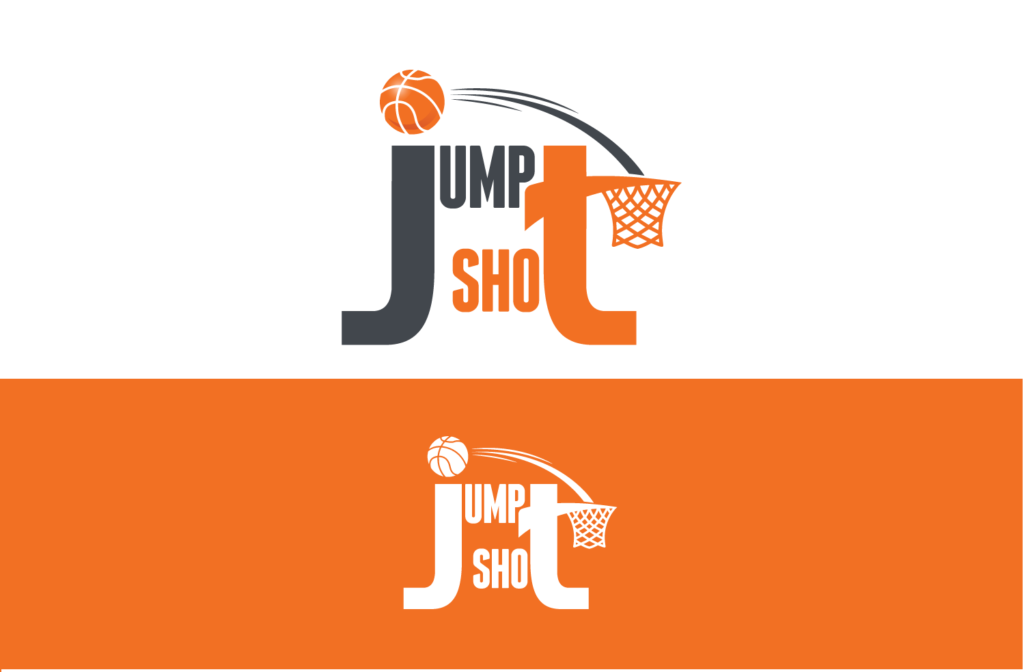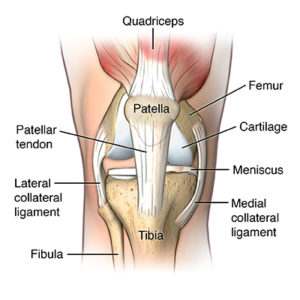Jumpshot
The Jumpshot (JUnior Morbidity of Patellar Symptoms and Health Of the Tendon) study is part of the National Basketball Association (NBA) and General Electric (GE) Healthcare grant fund and forms part of the PhD for Meaghan Harris. This project involves investigating the structural changes in the patella tendon (knee tendon) as junior basketball athletes develop and information surrounding their training load and sport related and patella tendon pain questionnaires.
What is the Patellar Tendon?
The patellar tendon connects the kneecap to the shin bone. It plays an important
role transferring the force that you generate in your thigh muscles to create movements, like running, jumping, and landing. These are movements that happen frequently and intensely when you are playing basketball. Sometimes, athletes develop pain in their patellar tendon (tendinopathy); this is commonly called “jumper’s knee”. The development of patellar tendinopathy can be related to how much you move and the quality of how you move. Additionally, in young athletes, patellar tendon pain may be related to your growth during this period of life. Understanding patellar tendon health in young basketball athletes is important to maximize your sport performance and minimize the risk of developing injuries as you grow up.
What does the study involve?
Our research group has received funding from the National Basketball Association (NBA) and General Electric (GE) Healthcare to study patellar tendon health in basketball players in order to improve performance and decrease the burden of injury in this population. This study is led by Professor Jill Cook, who has worked as a physiotherapist with NBL, WNBL, and Australian National Teams. The research team includes prominent researchers, faculty, and clinicians at several and universities in both Australia and the United States:
Jill Cook, LaTrobe University, AUS
Ebonie Rio, LaTrobe University, AUS
Sean Docking, LaTrobe University, AUS
Suzi Edwards, University of Newcastle, AUS
Darin Padua, University of North Carolina at Chapel Hill, USA
David Berkoff, University of North Carolina at Chapel Hill, USA
Our team has decades of clinical and research experience studying and treating athletic populations, with a particular focus on injury prevention, tendinopathy, and decreasing the burden of musculoskeletal injury. This study will focus on the adolescent athletes in order to better understand how the patellar tendon develops during puberty.
What information will be collected in this study?
Information will be collected from participating athletes over a 3-year period. Participants will have a UTC ultrasound scan of their knee every 6 months, starting at the age of 12-15 years. Additionally, athlete demographic information (height, weight, BMI), information regarding training loads (how much physical activity the athlete completes), and questionnaires related to sport participation and patellar tendon pain will be collected.
What is a UTC scan?
Ultrasound tissue characterization (UTC) is a specialized ultrasound technique that quantifies the structural integrity of tendons. The technology takes a conventional grayscale (black and white) ultrasound image and overlays computer algorithms that quantify the distribution of healthy and unhealthy tendon tissue. This determination is made by examining the patterns of collagen fibers within the tendon. From the UTC image, researchers and clinicians are able to acquire information about an athlete’s tendon health; with serial scans, it is possible to track any changes that may occur over time.
The study will measure your growth and development as well as the development of the tendon. These data will be available to you if you request them at any stage during the study. We will use the findings to provide a better understanding of how this tendon develops and the risk of developing injury to this tendon.
Meet our team:
Professor Jill Cook
Prof Jill Cook is a professor in musculoskeletal health in the La Trobe Sport and Exercise Medicine Research Centre at La Trobe University. Jill’s research areas include sports medicine and tendon injury. Jill has worked extensively as a physiotherapist with NBL, WNBL and Australian national teams.
Jill has vast experience in tendinopathy research and clinical aspects of the condition. In addition to her overall contribution to tendon research, Jill is an author on two critical papers on tendinopathy, the first the development of an outcome measure for patellar tendinopathy (the VISA scale) that has been translated into more than 10 languages and is considered the best outcome measure for patellar tendinopathy. The continuum model of tendon pathology is accepted as the leading model that links pathology to clinical presentation. In addition, Jill is the deputy director of the Australian Centre for Research in Injury in Sport and its Prevention, funded by the International Olympic Committee since 2009.
Dr Sean Docking
Dr Sean Docking is a clinical sports medicine researcher with a special interest in tendinopathy and clinical musculoskeletal imaging. Sean’s primary research interests focus on understanding the clinical utility of imaging in lower limb tendinopathy, specifically with ultrasound tissue characterisation (UTC). Sean is also interested in developing injury prevention protocols in elite athletes to better quantify the morbidity associated with tendinopathy and understanding the effect of load on tendon structure.
In addition, Sean is also an adjunct research fellow and part of the Australian Centre for Research into Injury in Sport and its Prevention. Sean is currently completing a similar study in elite Australian rules football players. The preliminary findings from this research has informed the direction of this current grant.
Dr Ebonie Rio
Dr Ebonie Rio is a Sports Physiotherapist that treats elite athletes as well as an active researcher completing postdoctoral research in tendinopathy. Ebonie has completed her PhD in tendon pain and conducted the first studies in the world that have demonstrated exercises that may be used to reduce tendon pain immediately. In addition, Ebonie is an adjunct research fellow and part of the Australian Centre for Research into Injury in Sport and its Prevention.
Ebonie was also part of the team that has conducted the only in-season exercise intervention in tendinopathy that has demonstrated a positive result. Ebonie continues to work with elite athletes and this drives her research to be clinically relevant.
Dr Suzi Edwards
Dr Edwards is a senior lecturer at the University of Newcastle. Suzi has completed extensive research into the biomechanics of sporting injuries, particularly in patellar tendinopathy.
Suzi’s past and current research investigates what critical biomechanical factors predispose athletes to overuse injuries and affect their sporting performance. Suzi’s patellar tendinopathy research is the first research internationally to identify that asymptomatic patellar tendon abnormality (PTA) displayed a different landing technique compared to athletes with a normal tendon.
Dr. Darin Padua
Dr. Darin Padua is a Professor and Chair of the Department of Exercise and Sport Science and Director of the Sports Medicine Research Laboratory at University of North Carolina at Chapel Hill (USA). Darin is a biomechanist and certified athletic trainer with expertise in the prevention and management of musculoskeletal injuries, with an emphasis on acute and chronic knee injuries. Darin’s primary research interests focus on identifying risk factors associated with knee injury and developing evidence based prevention strategies.
Dr. David Berkoff
Dr. Berkoff is an Associate Professor of Orthopaedics and fellowship-trained primary care sports medicine physician at the University of North Carolina at Chapel Hill (USA). Dr. Berkoff’s primary clinical and research interest is in tendinopathy, specifically in innovative, non-operative treatment techniques and musculoskeletal ultrasound applications to promote healthy, active lifestyles for his patients and in the community.
Aliza Rudavsky
Aliza is an orthopaedic physiotherapist and is currently completing her PhD. Her research revolves around patellar tendon development, utilizing the UTC (ultrasound tissue characterization) to quantify subtle changes in tissue structure during puberty. Aliza’s research aims to identify when patellar tendon abnormalities develop in young jumping athletes. These abnormalities can set those players up for developing tendinopathy in adulthood.
Laura Stanley
Laura is a physiotherapist currently completing her PhD at the University of North Carolina at Chapel Hill (USA). Laura earned her specialist certification in (SCS) and has six years of clinical experience with a particular focus on knee injury rehabilitation. Her research interests focus on understanding the role of training load and biomechanics in the prevention and treatment of knee injury, and improving the effectiveness of rehabilitation to maximize long-term knee health.
Madeline Hannington
Madeline is a physiotherapist commencing her PhD at Latrobe University (AUS) while assisting with this project. Madeline currently works in musculoskeletal and sports physiotherapy. Madeline was recently part of the medical team that worked with the first ‘NBA without borders’ held in Melbourne, Australia and has an interest in injury prevention in athletes.
How to get involved?
If you are interested in more information or participating in this study, please contact Professor Jill Cook (Australia) or Laura Stanley (United States):
Professor Jill Cook Email: J.Cook@latrobe.edu.au
Laura Stanley Email: lstanley@unc.edu


